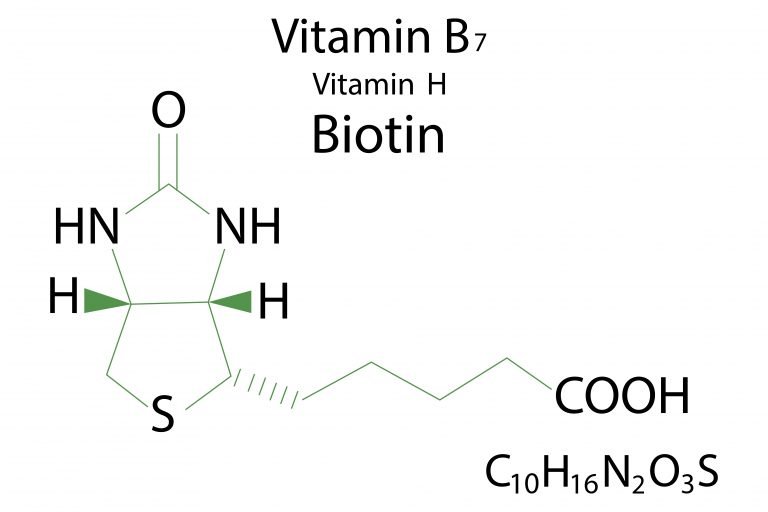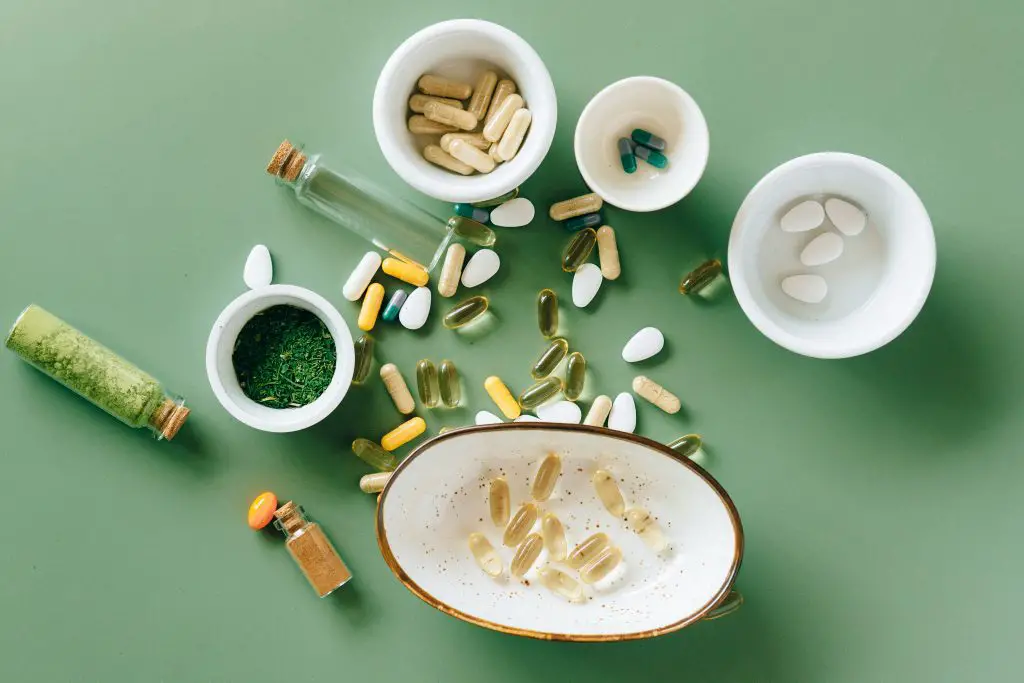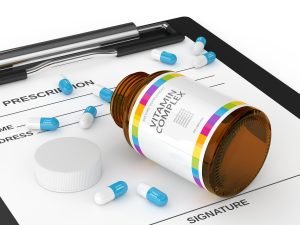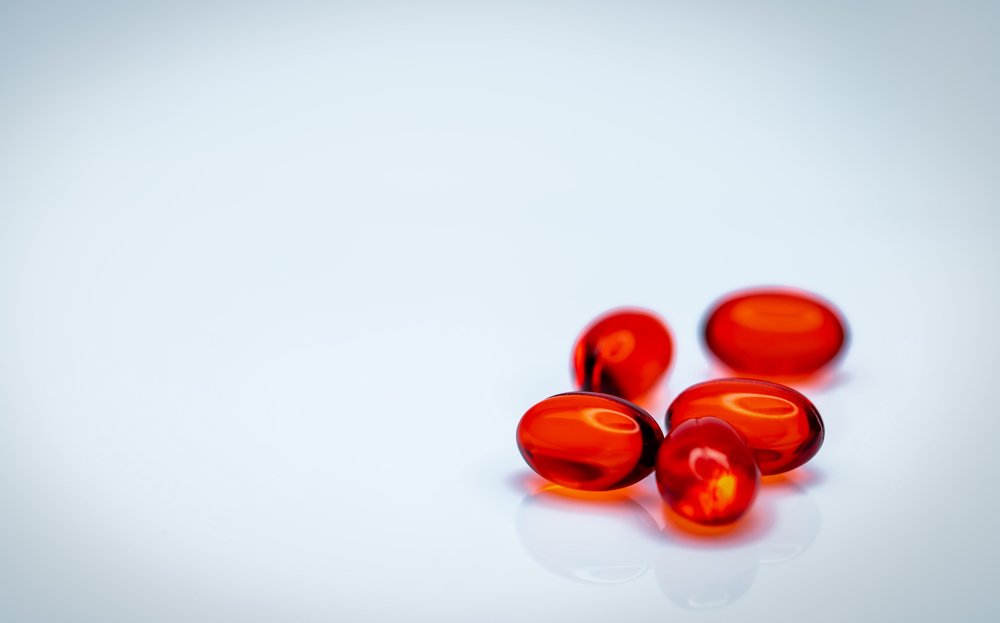
Page Contents
Almost all the different vitamins you are familiar with can be purchased as an individual vitamin supplement. Almost all of these dietary supplements have a dose of their respective vitamins that is far more than what you actually need.
Biotin certainly is this way, which is why you might rightfully worry if 10,000 mcg of biotin might be a bit too much. Or, you might be equally wondering if 10,000 mcg of biotin might be what you need, how to tell if you are getting enough biotin, or any number of questions.
How Much Biotin Is Recommended?
The question of just what is the right dose for biotin seems to be something that there is a bit of debate about. Different sights will tell you different amounts, but all of them are probably lower than you might think. This is why most sites only give you a general recommendation for a good biotin dosage.

For example, the mayo clinic has what they consider to be the right dosage of biotin, and even they have a range. They recommend 10 to 20 mcg per day for infants up to 3 years old; 25 mcg per day for kids from there to 6 years old; 30 mcg per day for kids from there up to 10 years old; and a whopping range of 30 to 100 mcg per day for teenagers up to adults.
That said, most other sights have a daily recommended dose of biotin set at 30 msg per day. That is for adults aged 19 years old or older. This dose doesn’t take into account women who might be pregnant or those who might need more for any other reason.
Therefore, closer to 50 mcg per day of biotin is probably best for the average person. Pregnancy or other things should probably be reason enough to take something like 100 mcg of biotin.
If you are depleted of biotin enough to notice the signs of biotin deficiency (which I will list further down), then you will need more than an average daily dose for a while. Your body will need more biotin in order to both catch up where needed and to do its daily functions.
If you get depleted enough of biotin, then your doctor may prescribe an extra strong biotin prescription. In this case, go with the biotin intake that your doctor recommends.
Why Biotin Supplements Have 10,000 Mcg
Biotin supplements can be in a few different forms and in different amounts as well. The most common forms biotin can take are capsules, liquid or gel capsules, and tablets. However, biotin can also be gotten as a powder as well.
All those options are beside the biotin that is in daily multivitamins, as an oil that can be applied topically, and as a main ingredient in shampoos and other things. Biotin is also in B complex vitamin supplements, thanks to it being vitamin B7.
When in a daily multivitamin and a B complex vitamin, biotin usually doesn’t have a full 10,000 mcg. That said, most supplements that are just biotin by itself have either 5,000 mcg or 10,000 mcg.
Considering the daily recommended amount of biotin is not even a tenth of that, such a large dose of biotin can easily seem like overkill. So why do biotin supplements have 10,000 mcg of biotin in them?
Some will say that biotin makers put so much in biotin vitamins because they want to capitalize on the more is better idea. Most people will go with a higher dose of biotin, especially if it is almost the exact same price as a biotin supplement that has a lower dose in it.
Also, keep in mind that biotin is a known water soluble vitamin. That means it doesn’t stick around long in your system. Taking into account that you might not have good digestion, it is actually necessary for some people to have a high dose in order to ensure that they have an adequate intake.
Then, companies making biotin probably feel pressured to make their biotin supplement as competitive as possible. Who would choose a mere daily dose of biotin when they get more for the same few dollars?
Related Reading
Signs Of Too Much Biotin
Just because biotin is a water soluble vitamin and is easily flushed out of your system, this does not make it perfectly safe to take in large doses. Yes, a water soluble vitamin is much harder to overuse, but excess biotin can cause a handful of different adverse side effects.
For starters, though biotin is supposed to help with your skin, excess biotin can and will cause acne breakouts. Biotin also helps with skin rashes, but may cause a bit of redness with a high dose.
Those taking their biotin supplement on an empty stomach may also find their stomach getting irritated. The usual things here are diarrhea, nausea, general discomfort, etc.
Also, just because water soluble vitamins are dealt with easily by most people, that isn’t the case for everyone. Those with a messed up urinary tract, kidney problems, or something similar, can’t flush out anything easily.
So, excess biotin, in this case, will put even more strain on what is probably an already overloaded bodily system. This can have the ‘side effect’ of worsening your condition, which is an obvious sign you should stop taking biotin.
All of that said, most places never say what they think a maximum safe dose of biotin is. One or two sites have this set at somewhere between 10,000 mcg and 50,000 mcg. For some, 10000 mcg of biotin is too much, while others take this amount daily with no problems.
When A 10,000 Mcg Biotin Supplement Might Be Needed

Part of the reason vitamins are called vitamins is because all of them are necessary for some aspect of your health. Even the vitamins that you only technically need a small amount of are vital.
There are certain reasons why biotin supplementation might be absolutely necessary to keep your biotin levels where you need them. There are genetic disorders that can cause a biotin deficiency, including something called seborrheic dermatitis that infants can have.
Any type of stomach issue, be it Chron’s or IBS, is going to make digesting anything harder, including biotin. If you have a surgical removal of part of your stomach, you are virtually guaranteed to not be able to digest all the biotin you intake.
As for signs that your biotin levels are low, there are several you can watch for. For starters, as a B vitamin, biotin is part of what provides fuel for your body. So, a lack of energy might be a sign of low biotin levels.
Other, more obvious signs to look for include thinning hair, poor nail growth, and skin problems. These are because biotin can be used to make keratin, which is something your hair growth needs. Slightly less obvious signs include high cholesterol and other blood pressure problems.
- POTENT AND POWERFUL: Biotin, also known as vitamin B7, is an essential micronutrient involved in...
- HEALTHY HAIR AND SKIN: Our Biotin 5,000 mcg soft gels support keratin synthesis to support your hair...
- PREMIUM QUALITY: Sports Research is proud to offer products using only the best ingredients...
Last update on 2025-07-08 / Affiliate links / Images from Amazon Product Advertising API
Those are just a few situations that might call for increased biotin intake. There are certainly more situations that might warrant it, but a doctor would be better able to tell you what they are.
Final Thoughts
All in all, it is hard but possible to get too much biotin. It is more likely you’ll get an excess of biotin if you take a biotin supplement on top of eating foods that are high in it. Some of these foods are salmon, liver, carrots, bananas, and cauliflower.
If too much biotin might be a concern for you, you are probably safer sticking to a biotin supplement that only has 5,000 mcg or less per serving. However, you shouldn’t be afraid of the 10,000 mcg option if you know that you need biotin.







